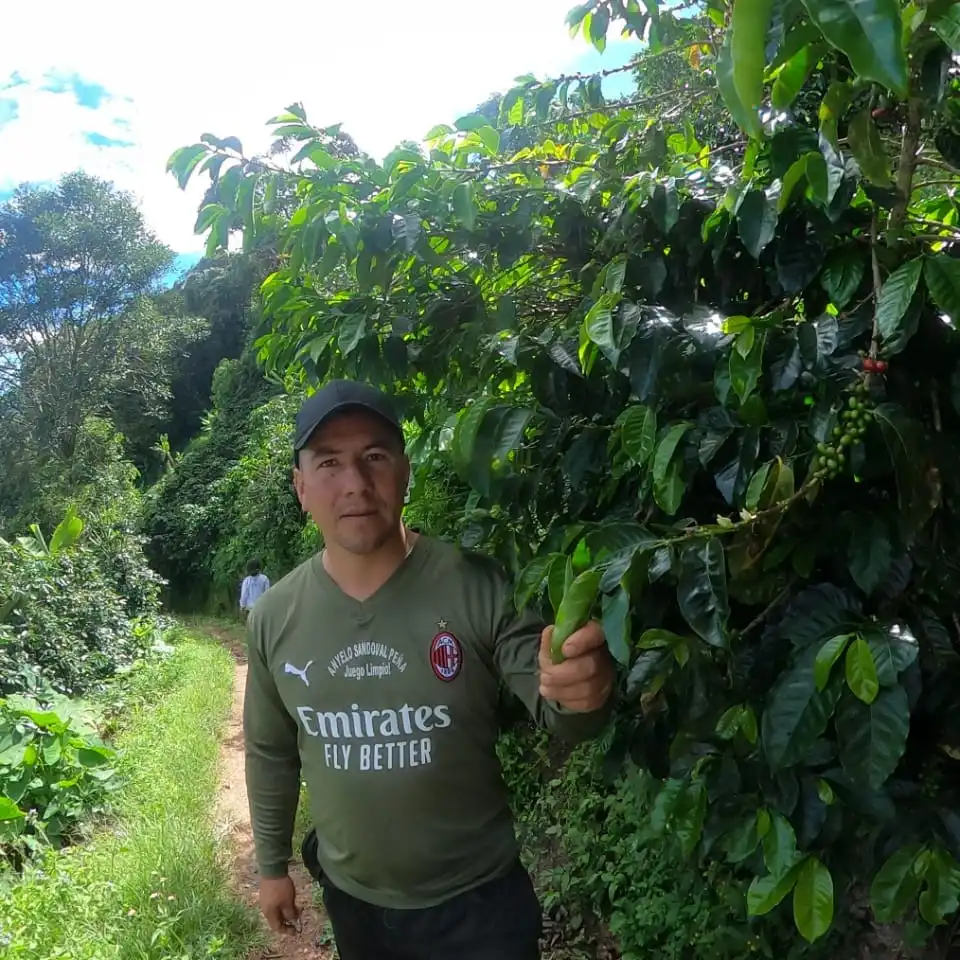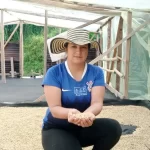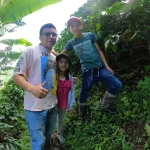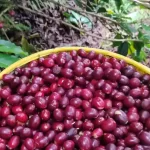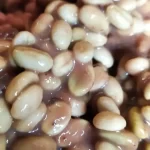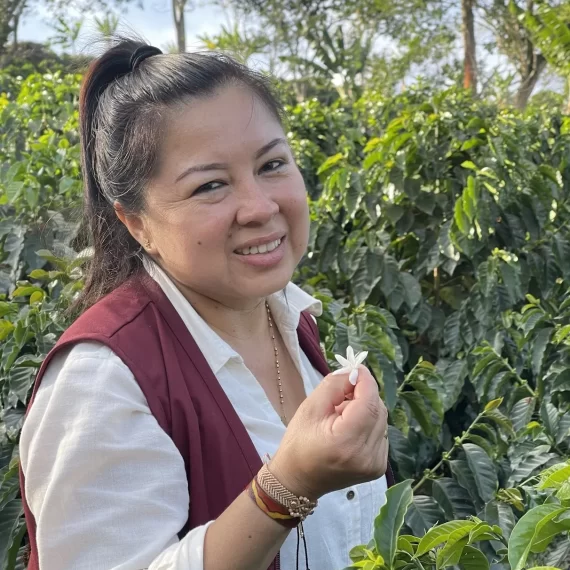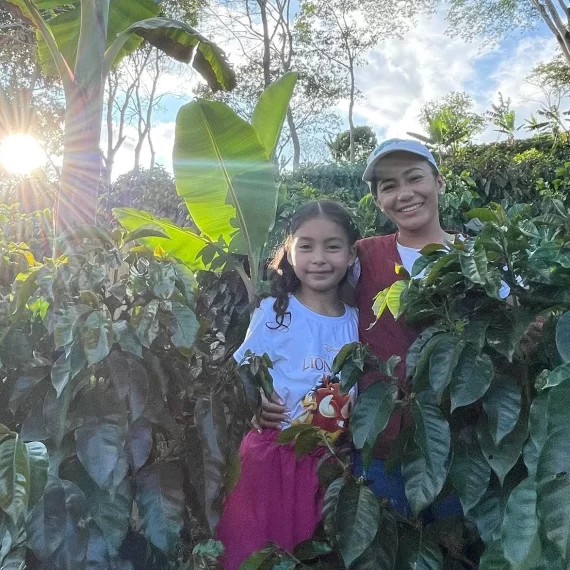
Henry Muñoz a Monica Berdugo
Our family coffee farm has a 15-year tradition. I got into coffee growing thanks to my father, with whom I worked on the farm as a boy. I fell in love with this profession and continue it to this day. Together with my wife Mónica, we strive to constantly improve the farm and learn new things. We want to be a good example for our children and leave them a prosperous business.
Our production includes two main coffee varieties. We process Pink Bourbon in a quantity of approximately 2000 kg per year, with 40% harvested in mid-season and 60% during the main harvest. The second variety is Maracaturra, with an annual production of about 4500 kg, of which 35% is harvested in mid-season and 65% during the main harvest. Both varieties are processed using the traditional washed method, which helps preserve the typical flavor characteristics of our region.
A major change in our approach to coffee growing came after meeting Carlos Muñoz from Ricordi Coffee Co. Thanks to his advice and guidance, we started focusing on the production of specialty coffees. This transition meant a 180-degree shift in our traditional way of growing coffee. We are grateful for this opportunity and happy to present our exceptional coffee today.
Now I am working with new varieties, enjoying the differences between them, and experimenting with planting new trees. Besides new varieties, we are also interested in soil nutrition and how it affects coffee quality. So I would say that our main task is to ensure good nutrition for our coffee plants. The entire family participates in the harvest. We carefully select coffee cherries and process them with care in our family circle.
Farmers:
Mónica Berdugo
I come from a farming family. I grew up among coffee trees and as a child, I used to go pick coffee with my grandfather. I would climb bamboo to reach the highest cherries on the trees. I have spent my entire life on coffee farms.
Now I learn the most through our daily work with coffee from all the people around me and especially when we evaluate and taste every lot of coffee we grow.
Henry Muñoz
I have worked with my father on a coffee farm all my life, which is why I wanted to continue in this profession. Most of my knowledge came from my dad over the many years we worked together. Now, with my family, I continue this beautiful craft that my father taught me and left me as a legacy.
Now we focus on growing specialty coffee. Our processing is not scientifically complex, but we put a lot of love, dedication, and effort into doing things well. We mainly process coffee using the washed method with traditional fermentations to highlight the natural profile of each variety.
About the coffee
Everything on the farm is done naturally and with care. The family avoids using yeast, thermos, fruits, or sugars during processing, ensuring the coffee’s flavor remains pure and authentic. Soil nutrition is a key focus, as the family continues to learn how to bring out the best in their coffee trees.
The harvest is a special time, bringing the whole family together. Each coffee cherry is hand-picked with care, ensuring only the best make it through. The result is a coffee that doesn’t just taste good—it tells the story of the land, the family, and their shared love for coffee.
We harvest the coffee by hand and develop only ripe cherries. We then wash the coffee, remove impurities and bad beans and leave it to ferment in GrainPro bags for 36 hours. Then we wash, de-peel, and let the coffee ferment in bags for another 36 hours, this time with added water and the juice we collect while cleaning the coffee from the pulp. Afterwards, the coffee is thoroughly washed twice and allowed to drain completely. This is followed by 20 days of drying under a roof on the farm.
We harvest the coffee by hand and develop only ripe cherries. We then wash the coffee, remove impurities and bad beans and leave it in a hopper in a wet mill for 12 hours where the fermentation process gets underway. Then we wash the coffee from the skins and pulp and let it ferment anaerobically in a tank for 36 hours. The coffee is then dried on the farm for 15 to 24 hours depending on the weather.
The coffee is hand-picked into plastic baskets and then poured into bags. These bags are carried to the farm for processing three times a day at the following intervals:
•Breakfast time at 8:30 AM
•Lunchtime at 12:00 PM
•Afternoon at 5:00 PM
All Maracaturra coffee harvested during the day is placed in a wooden container, which is the only time the coffee undergoes aerobic fermentation (oxidation).
Early the next morning, we proceed with depulping. All the depulped coffee is placed in a tank (3 meters long, 2 meters wide, and 60 cm high) without water, where it remains for 36 hours.
After this period, we perform double washing.
The coffee is then transferred to a drying area made of wooden planks, with partial shade and a plastic roof. It is crucial to spread the coffee in a thin layer to ensure quick aeration.
The drying process takes between 15 to 20 days.


